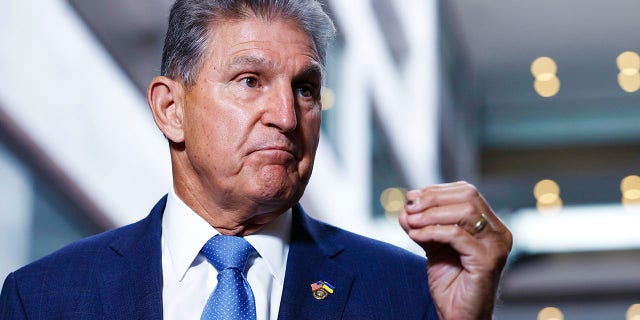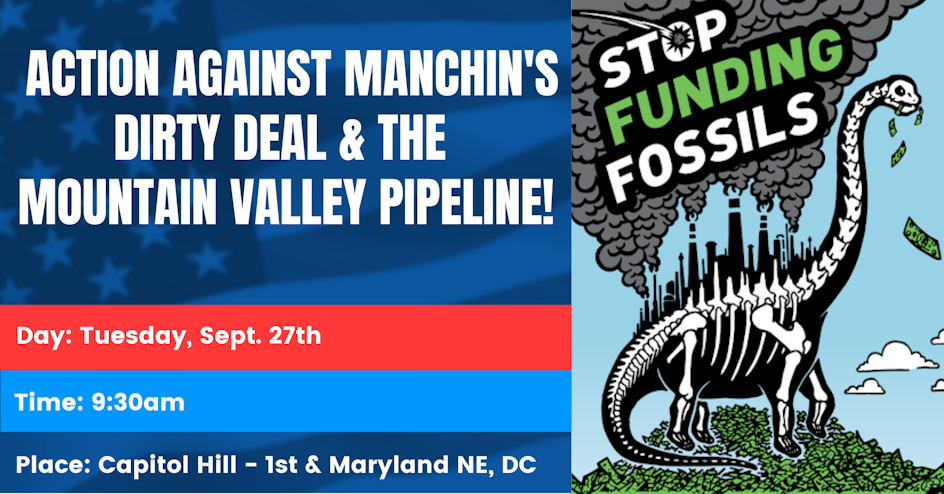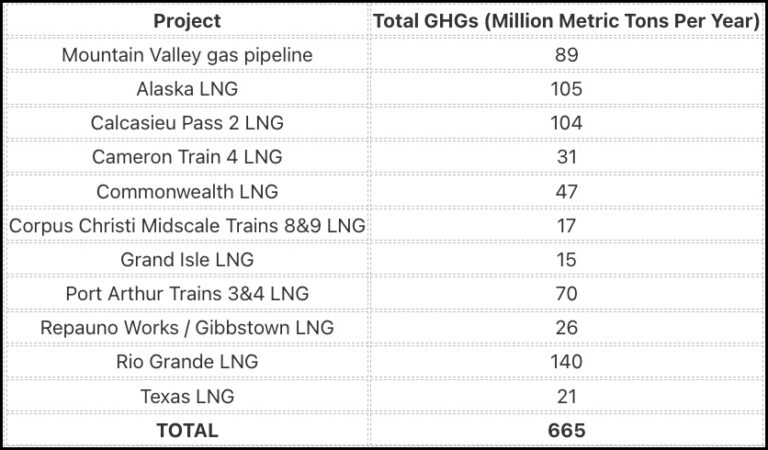
ACTION ALERT: Senator Joe Manchin’s
Dirty Oil Deal Blocked but Not Dead
Alex Ortiz / Oil Change International & Collin Rees / Oil Change International
(September 27, 2022) — Last night, Senator Joe Manchin withdrew his “permitting reform” bill from the US Senate. This is a huge WIN for our movement — but the fight is far from over.
Unfortunately, the Biden Administration has expressed its disappointment in Manchin’s withdrawal of the bill, and it’s likely that Senate Majority Leader Chuck Schumer will attempt to get the bill passed sometime in October or later this year.
Getting the bill withdrawn is a testament to the people-power organizing led by frontline, Indigenous, and Appalachian communities — now we need to make sure this win turns into a lasting victory.
Alex Ortiz is Communications Officer for Oil Change International
P.S. Earlier this week before Manchin admitted defeat, we released new analysis showing that emissions from fossil fuel projects the bill could fast-track would likely dwarf potential emissions reductions from increased transmission line projects. You can read the full analysis here.

Manchin’s Bill Could Cut Climate Gains
By Fast-Tracking Fossil Fuel Projects
Collin Rees Blog Post
(September 27, 2022) — By approving new liquified natural gas (LNG) export facilities and fast-tracking the Mountain Valley Pipeline, Senator Joe Manchin’s proposed permitting legislation could lead to hundreds of millions of additional tons of carbon dioxide equivalent (CO2e) per year, according to data compiled by Oil Change International.
The total annual emissions from the Mountain Valley Pipeline and currently proposed LNG terminals in pending federal permitting processes — whose construction could be facilitated by Sen. Manchin’s “dirty deal” — is 665 million metric tons of CO2e.
This figure is over five times the potential emissions reductions resulting from the construction of 22 transmission line projects that proponents have suggested the bill is supposed to facilitate (119 million metric tons). The Mountain Valley Pipeline alone, at 89 million metric tons of CO2e per year, would negate 75% of that. Just one of the larger LNG projects — for instance, Rio Grande LNG, at 140 million tons CO2e per year — would emit more than the estimated transmission line savings.

Source: Based on methodology from this Oct. 2021 Oil Change International briefing, with an updated list of projects.
While these fossil fuel projects are currently facing stiff opposition from grassroots and environmental groups, Manchin’s proposed legislation could ease their approval pathway by weakening environmental reviews and mandating the president to designate so-called “critical energy projects” that would be prioritized and exempted from some regulations.
Striking as they are, these numbers are likely an underestimate of the total emissions the permitting legislation would unlock, because they only include currently proposed fossil fuel projects. With this new legislation in place, fossil fuel companies could be encouraged to propose even more polluting projects, anticipating an easier permitting process thanks to a weakened National Environmental Policy Act (NEPA).
The bill could also extend the life-cycle of existing power plants or other polluting facilities, and could encourage ongoing fossil fuel production — including on public lands and waters — leading to additional GHG emissions.
Over the last week, much has been made about the potential carbon savings from the legislation’s efforts to speed up the build out of transmission lines, a key component of a new clean energy system. According to Princeton’s REPEAT project, the pace of transmission expansion must more than double to achieve the full emissions reductions potential of the IRA.
But REPEAT and other analysts haven’t modeled the actual impacts of Manchin’s proposed legislation. While the bill would likely help speed up some transmission buildout, the actual impact of the legislation on transmission expansion is unknown.
It’s possible the necessary expansion could be achieved with existing permitting requirements, or that critical and useful regulatory reforms could be enacted under existing laws without the legislation. These are open questions, as are the actual climate savings achieved through this proposed legislation.
While most of the potential emissions reductions from the IRA are reliant on a variety of unproven assumptions — such as the hopes that new tax credits will allow clean energy to rapidly displace fossil fuels, consumers will purchase new electric vehicles, and carbon capture and sequestration will function at scale — the emissions from new fossil fuel projects are all but guaranteed.
Once built, these pipelines and export facilities will pump millions of tons of CO2e into the atmosphere each year for decades to come.
A number of Members of Congress have suggested that while they oppose the negative impacts of Manchin’s proposed legislation on communities and local environments, the bill is worth passing because of the potential climate savings. This analysis directly undercuts that argument. While more transmission is most certainly needed, the potential benefits from Manchin’s dirty deal are hypothetical and undetermined — but the resulting harms are concrete, calculable, and very high.
For more context, here is the original email we sent about the Manchin’s dirty deal.

The Roots of Manchin’s Dirty Deal
Collin Rees / Oil Change International
The past two months have been a whirlwind in US climate politics. In August, President Joe Biden signed the Inflation Reduction Act into law, the result of a rushed, closed-door negotiation between Senate Majority Leader Chuck Schumer and Senator Joe Manchin. And while the IRA includes some important investments in renewable energy, the bill embraces a deadly ‘all of the above’ energy strategy and is riddled with hundreds of billions of dollars in fossil fuel giveaways and lifelines to the oil, gas, and coal industries.
But that’s not all. In exchange for Joe Manchin’s vote on the Inflation Reduction Act, Senate Majority Leader Chuck Schumer promised the passage of a secondary legislative package of “permitting reform” — legislation that would greenlight the fracked gas Mountain Valley Pipeline, gut the National Environmental Policy Act, and remove crucial safeguards that have protected environmental justice communities for decades.
ACTION: Click here to send a message to your representative in Congress: Stop the Dirty Deal!
This “dirty deal” has been met with massive opposition from Indigenous and Alaska Native communities, BIPOC communities in the Gulf South, coastal communities, and communities near federal lands — people that would be most impacted by this destructive fossil fuel giveaway and were not consulted at any point in the negotiations for either climate package.
This month, we released a new factsheet debunking three myths Senator Joe Manchin has spread about the Mountain Valley Pipeline, which the dirty deal would force through despite nearly a decade of opposition from local communities in Appalachia, and despite repeated permit denials at all levels of government. Earlier this month, over 600 frontline organizers, Indigenous water protectors, and local activists rallied outside the US Capitol with a simple message for Chuck Schumer and Congress: Reject Manchin’s Dirty Deal and Stop the Mountain Valley Pipeline.
Nearly 80 members of Congress (over one-third of US House Democrats) have signed onto a letter demanding Schumer and Pelosi separate Manchin’s side deal from a government spending deal that would be automatically passed at the end of the month. Just yesterday, eight US Senators joined them in this call. Opposition against the dirty deal is growing, but we need your help to get more members of Congress to publicly come out against the dirty deal.
Collin Rees is United States Program Manager for Oil Change International
More Information:
- “Additional Members Sign Chair Grijalva Letter to House Leadership Opposing Permitting Rider in Continuing Resolution, Totaling 77,” Natural Resources Committee Chair, 09-12-22.
- “Merkley, Colleagues Highlight Environmental Justice Concerns on Permitting Legislation, Need for Standalone Floor Consideration,” Jeff Merkley, 09-22-22.
• “Press Release: New factsheet debunking Senator Manchin’s MVP myths,” Oil Change International, 09-08-22.”
• “Appalachian, Indigenous pipeline foes protest climate deal,” Washington Post, 09-08-22.